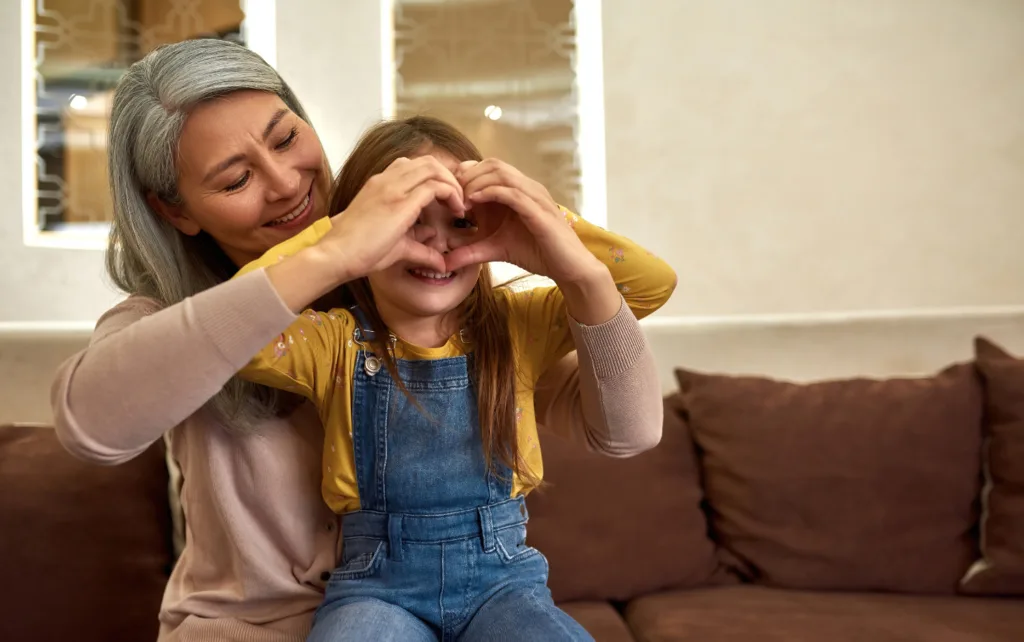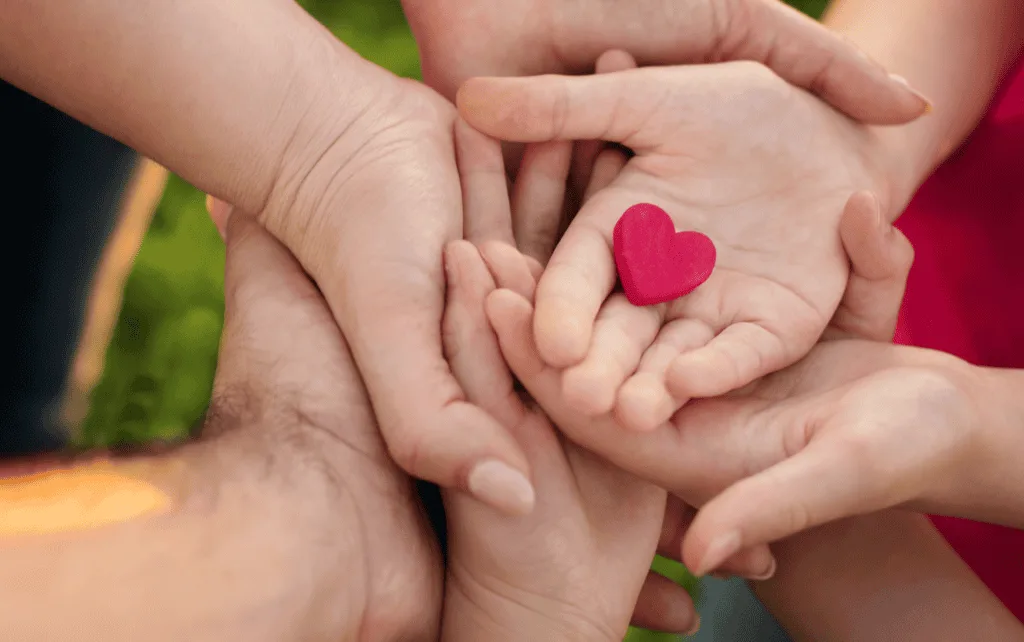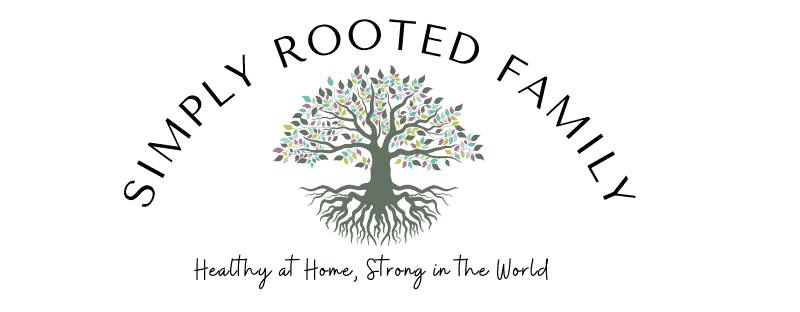By embracing heart-based living, you can not only enhance the quality of your family relationships but also create a ripple effect that extends to how your loved ones interact with the world. Join us as we uncover the transformative power of embracing a heart-centered approach to family life.
In the 1990’s, scientists made a quite interesting and amazing discovery.
They found that the human heart – previously thought of as a machine that pumps fluids – contains around 40,000 neurons (leading to the term “little brain”).
Basically our hearts can think.
While this news may have been shocking to the science community, it appears this was old news to a lot of the world according to many religions.
- In the Bible (Matthew 6:21), Jesus said, “For where your treasure is, there will your heart be also”.
- According to the Quran, the heart serves as a medium for God’s revelations to human beings and is also a place for vision, understanding, and remembrance.
- The ancient Chinese believed the heart was the center of human cognition or the “mind”.
- In Hinduism and Buddhism, the heart chakra can be experienced as infinite, unconditional love.
Let’s learn what heart-based living is and how it can profound and life-changing effects on the emotional intelligence of your family.

Also read: How to Teach Kids that Their Thoughts are Magnets
What is Heart-based living?
Heart-based living is a mindset and a way of being that places the heart at the center of our existence.
It is a holistic approach to life that emphasizes the importance of emotional connection, empathy, and compassion in our daily interactions and relationships.
At the core of heart-based living is the tuning in to the whispers of our hearts, allowing them to inform our choices and shape our relationships. This cultivates a deep sense of self-awareness and emotional intelligence, enabling us to navigate the complexities of life with greater clarity and authenticity.
While this sounds abstract, there are actually solid techniques and activities you and your family can do to activate your heart. And when kids are taught these skills at a young age, it will be ingrained in them as they grow older.
Benefits Shifting to Heart-based Living
The ego is a term that refers to a person’s sense of self, identity, and awareness of their existence.
It’s the part of the brain that is constantly saying selfish things such as “but how can this help ME” or “what can I do to benefit MYSELF”.
Shifting to heart-based consciousness, or heart-brain coherence, can have many proven benefits, including:
- Improved mental health and improved emotional stability and resilience
- More harmonious relationships and better conflict resolution
- Reduced stress and anxiety
- More restful sleep
- Improved mental clarity and decision making
- Enhanced creativity
- Increased energy and vitality – as well as improved physical health
- Deeper emotional connection with yourself and others
Personally, when I made the shift from ego to a heart-based consciousness, it was absolutely life-changing and I decided couldn’t wait another minute to pass this mindset on to my children.
5 Heart-Based Living Mindsets and Activities
When families adopt a heart-based approach, children learn to navigate their own emotional experiences with greater awareness and compassion.
Here are 5 simple activities and mindsets that will guide your family to live a heart-centered life.
1) Adopt a “Never Miss a Moment to Serve” Mindset
One of the most important parts of living a heart-based life is understanding that our role as humans is to help others and treat people how we wish to be treated.
We can’t all catch a plane to Haiti to help build homes for the less fortunate, but there are plenty of ways to serve others each and every day.
I’ve taught my kids to adopt the “never miss a moment to serve” mindset. This basically means that you can always search for ways to help others. This could even be as simple as smiling at someone who looks lonely.
Consider this Bible story in Matthew 25: Jesus explained that the righteous will be told that they helped him when he needed it (fed him when he was hungry, etc). When they ask “but we didn’t see you”, he will reply ‘Truly I tell you, whatever you did for one of the least of these brothers and sisters of mine, you did for me.’

You may also like: Are we accidently raising the weakest generation?
2) Practice Daily Heart-based Meditation
Heart-centered meditation is aimed at guiding you to a harmonious state, where you focus your thoughts and energy on your heart.
As a science major, I didn’t always believe in meditation, but after reading countless studies on the positive physical and mental benefits I decided to start practicing. And when I started this quick and simple heart-focused mediation daily my mood and view on life changed.
How to do heart-based meditation:
- Get in a quiet, comfortable place
- Place your hand over your chest and close your eyes
- Focus on your breathing. Take a deep breath in (while counting to seven), hold your breath for three seconds, and breathe out slowly (imagining your energy is flowing to your actual heart). Repeat this three times.
- Now, recall a happy moment in your life when you felt unconditional love
- Focus on how you felt during this moment in life, the tingling in your heart (if you feel yourself smile you are doing it right)
- Now, stop thinking about the details of the moment and just bask in the love you feel in your heart
- Try to hold this feeling for as long as you can (at least 30 seconds)
I do this every morning as soon as I wake up. My “moment” is when my youngest son was born (following a previous lost pregnancy), because I felt intense euphoria and unconditional love. I have my children do this exercise before they go to bed.

3) Bring Your Thoughts to Your Heart
When you start activating the “little brain” in your heart, you can begin to bring your thoughts and feelings to your heart.
This means that instead of letting your ego take over your life, you go to your heart first.
Let’s think of this in a real world example. Say you found out that your friend had a party and did not invite you. Your ego will first say “that’s not fair! I hate them. I guess they don’t deserve to be my friend.”
Take these thoughts captive and bring them to your heart – to a place of love. Your heart will say “I’m sure there was a reason my friend couldn’t invite me. Maybe they are going through something or need my support in a different way.”
This will take plenty of time and dedicated practice, but overtime it will become automatic.
4) Connect to Nature
Nothing is better for brain-heart health than a connection to nature.
In fact, research has shown that people with a strong connection with nature are typically happier in life, as nature can generate many happy emotions, including calmness, joy and creativity.
There are many ways to connect with nature in this article.
For example, grounding -the act of walking barefoot on the earth – transfers energy to your body from the earth’s surface.
In fact, an eight-week study showed that participants who practiced daily grounding experienced decreased inflammation, improved sleep and reduced stress levels.
Have your children remove their shoes and socks and feel the grass, dirt, or sand beneath their feet.
When you and your family connect to nature, you feel one with the earth and the people around you – which helps activate the heart.
Also read: How to Empower Your Son to Grow into a Good Man
5) Actively Practice Gratitude, Mindfulness, and Faith
The practice of gratitude, which is central to heart-based living, also plays a crucial role in nurturing emotional intelligence in children.
By regularly acknowledging and expressing appreciation for the people and things in their lives, children cultivate a positive and resilient mindset. They learn to shift their focus from what they lack to what they have, developing a greater sense of contentment, optimism, and overall well-being.
On the other hand, both faith and mindfulness help you love life by appreciating the present moment – and not getting lost in the past or future.
Try this: Challenge yourself throughout the day to see the beauty and magic in little things you usually take advantage of (you can bring your kids into this too!). Stop and feel the grass and listen to the birds and appreciate the beauty in the mundane.
Check out these mindfulness activities and focus on these lessons in faith to empower heart-based consciousness.
Final Thoughts on Heart-based Living for Your Family
I guarantee when you start these simple activities and lifestyle changes you will feel something change and grow deep with in you.
You will feel at home in this world when you focus on love and your heart.
As children grow up in a heart-based family environment, they internalize these emotional intelligence skills. They become more empathetic, self-aware, and adept at navigating the social and emotional complexities of life.
And just like a tree, when we raise kids who have strong family roots they will be unstoppable out in the world as they face winds and storms of all kinds and magnitudes.
For more tips and discussions on raising a strong family, follow us on Facebook or check out these articles on parenting.

